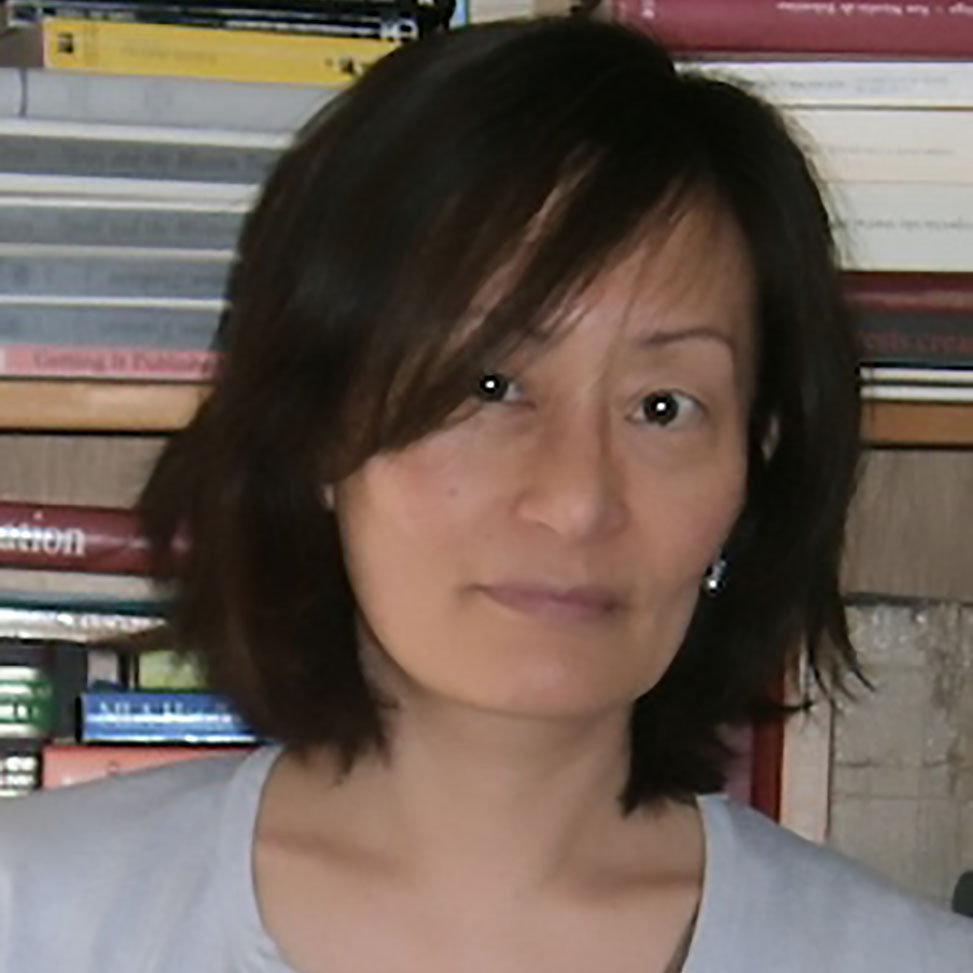Carmen Hsu

Accepting graduate students
Education
Ph.D., Harvard University, 2000
About Professor Hsu
Carmen Hsu teaches 16th-and 17th-century Spanish literature. Prior to coming to UNC-Chapel Hill in 2005, she taught at the Universität Bielefeld, Germany. Her research interests are primarily in the areas of theater, Cervantes, prose, “relaciones de sucesos” (news pamphlets), and Iberian-Asian relations. She is particularly interested in the representations of gender and space, the construction of national/cultural identity, transoceanic expansions, and cross-cultural exchanges.
Publications, Articles, & Presentations
Books and edited volumes
Courtesans in the Literature of the Spanish Golden Age. Kassel: Reichenberger, 2002.
Asia and Habsburg Spain’s Secreets: The Making of a National Identity in Early Modern Narrative (forthcoming).
Cervantes y su tiempo, ed. Kassel: Reichenberger, 2010.
Cervantes en tiempos de crisis. Eds. Carmen Hsu and Carmela Mattza (Volume manuscript in progress).
Peer reviewed articles and book chapters
“Cervantes’ Talking Elephant and the East Indies in La gran sultana.” Cervantes en tiempos de crisis. Eds. Carmen Hsu and Carmela Mattza (forthcoming).
“La imagen de la santidad a través de las relaciones de sucesos vinculadas a los martirios en el Japón de finales del XVI y principios del XVII” (forthcoming).
“Del norte de Europa al sur de Asia Oriental: Las batallas hispano-holandesas en Playa Honda durante la Tregua de Doce Años (1609-21).” Metamorfosis y memoria del evento. El acontecimiento en las relaciones de sucesos europeas de los siglos XVI al XVIII. Eds. Luc Torres, Hélène Tropé, and Javier Espejo. Salamanca: Ediciones Universidad de Salamanca, 2021. 339-54.
“Shipwreck, Exile, and Political Critique in the Comedia de Fernán Méndez Pinto en China (1631) by Antonio Enríquez Gómez.” Shipwreck in Early Modern Hispanic Literature and Culture. Eds. Elena Rodríguez-Guridi and Carrie Ruiz (forthcoming in Bucknell University Press in 2021).
“Martyrdom, Conversion and Monarchy in Los primeros mártires del Japón.” Zwischen Ereignis und Erzählung. Konversion als Medium der Selbstbeschreibung in Mittelalter und Früher Neuzeit. Eds. Werner Röcke, Julia Weitbrecht, and Ruth von Bernuth. Berlin: Walter de Gruyter, 2016. 217-34
“Amor y matrimonio según El laberinto de amor de Cervantes.” eHumanista/Cervantes 1 (2012): 537-51.
“Sobre la figura de Trampagos en El rufián viudo de Cervantes.” Anales Cervantinos 44 (2012): 185-204.
“La imagen humanística del gran reino chino de Juan González de Mendoza.” Bulletin of Hispanic Studies 8 (2010): 187-201.
“De un personaje cervantino: La Pericona y algunos aspectos de la poesía germanesca en “El rufián viudo llamado Trampagos’.” Cervantes y su tiempo. Ed. Carmen Hsu. Kassel: Reichenberger, 2010. 105-24.
“Writing on behalf of a Christian Empire: Gifts, Dissimulation, and Politics in the Letters of Philip II of Spain to Wanli of China.” Hispanic Review 78 (2010): 323-44.
“Planteamiento del tema celestinesco chino y Jin Ping Mei.” Celestinesca 34 (2010): 43-55.
“Acerca de la representación del archipiélago filipino en los Sucesos de Antonio de Morga.” Hispanófila 157 (2009): 117-32.
“Los chinos de Manila a través de las relaciones de sucesos del siglo XVII." Representaciones de la alteridad, ideológica, religiosa, humana y espacial en las relaciones de sucesos (siglos XVI-XVIII). Ed. Patrick Bégrand. Besançon: Presses Universitaires de Franche-Comté, 2009. 303-15.
“El Japón de Ávila Girón.” Las dos orillas. Actas del XV Congreso de la Asociación Internacional de Hispanistas. Vol. II. México, D.F.: Fondo de Cultura Económica, 2007. 227-43.
“‘La fuerza de la hermosura:’ The Courtesan Character in La tía fingida.” Cervantes y su mundo III. Ed. A. Robert Lauer & Kurt Reichenberger. Kassel: Reichenberger, 2005. 223-40.
“Dos cartas de Felipe II al emperador de China.” eHumanista: Journal of Iberian Studies 4 (2004): 194-2093.
Awards & Honors
Schwab Academic Excellence Award, Institute for the Arts and Humanities, UNC-Chapel Hill, fall 2020.
Graduate Student Faculty Mentoring Award, Department of Romance Languages and Literatures, UNC-Chapel Hill, 2012-13, 2020-21.
Andrew W. Mellon Foundation and National Endowment for the Humanities Fellowship at the Newberry Library, Chicago, 2018-19.
Edward Clarence Evelyn Dyason Research Fellowship for project “The Images of Terra Australis Incognita as Represented in Early Modern Spain and England,” University of Melbourne, Australia, 2015.
Burress Faculty Fellowship, Institute for the Arts and Humanities, UNC-Chapel Hill, spring 2013.
Semester Leave Fellowship, Program in Medieval and Early Modern Studies, UNC-Chapel Hill, fall 2012.
Research Fellowship for project “Spain and Formosa in the Age of Maritime Rediscovery,” Council for Cultural Affairs, Taiwan, 2006-07.
Dissertations
M.A. Theses Directed
Sarah Catherine Landis. “Algo más engañoso que carnero: The Land of Cockaigne as a Backdrop for False Appearances in El Quixote,” Romance Studies, 2021.
Elena Peña-Argüeso, “Catarismo, redenciones y milagros en La vida de San Pedro Nolasco,” Romance Studies, 2019.
Ellynn Loftus, “‘Las que en mí fueron espinas, se vuelven rosas en ti’: The Representación of Female Sainthood in Lope de Vega’s Famosa comedia de la bienaventurada madre Santa Teresa de Jesús,” Romance Studies, 2018.
Typical Courses
Undergraduate
SPAN371 — Conflict and Literature in Early Modern Spain
ROML 71/ASIA 71 — Asia in Iberian Converso Literature, 1500s-1650s
Graduate
The Spanish Comedia of the Golden Age
Cervantes and Don Quixote
Golden Age Prose
